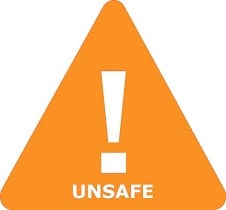Is Milnacipran Safe in Breastfeeding
Question
I am a breastfeeding mother and i want to know if it is safe to use Milnacipran? Is Milnacipran safe for nursing mother and child? Does Milnacipran extracts into breast milk? Does Milnacipran has any long term or short term side effects on infants? Can Milnacipran influence milk supply or can Milnacipran decrease milk supply in lactating mothers?
Milnacipran lactation summary

- DrLact safety Score for Milnacipran is 5 out of 8 which is considered Unsafe as per our analyses.
- A safety Score of 5 indicates that usage of Milnacipran may cause serious side effects in breastfed baby.
- Our study of different scientific research indicates that Milnacipran may cause moderate to high side effects or may affect milk supply in lactating mother.
- Our suggestion is to use safer alternate options rather than using Milnacipran .
- It is recommended to evaluate the advantage of not breastfeeding while using Milnacipran Vs not using Milnacipran And continue breastfeeding.
- While using Milnacipran Its must to monitor child for possible reactions. It is also important to understand that side effects vary largely based on age of breastfed child and time of medication in addition to dosage.
- Score calculated using the DrLact safety Version 1.2 model, this score ranges from 0 to 8 and measures overall safety of drug in lactation. Scores are primarily calculated using publicly available case studies, research papers, other scientific journals and publically available data.
Answer by Dr. Ru: About Milnacipran usage in lactation
Serotonin and Norepinephrine selective re-uptake inhibitor. Authorized for treatment of Fibromyalgia in some countries. Frequent and potential severe side effects have been found. At usual dose it does not induce galactorrhea. Latest update failed to find relevant data on breastfeeding. Pharmacokinetic data (low serum protein binding and high bioavailability) indicates that drug excretion into breast milk in significant amount is highly probable. Absorption by the infant is likely to be high as well. A known alternative would be preferred until more information on the drug is available.
Answer by DrLact: About Milnacipran usage in lactation
Milnacipran has not been studied in nursing mothers and the manufacturer recommends that nursing mothers not take milnacipran.[1] Because no information is available on the use of milnacipran during breastfeeding, an alternate drug may be preferred, especially while nursing a newborn or preterm infant.
Milnacipran Possible Effects in Breastfeeding
Galactorrhea is reported by the manufacturer to be a side effect of milnacipran.[1] One woman who was being treated for depression took an intentional overdose of 950 mg of milnacipran orally. From day 5 to day 15 after the overdose, the patient noted a flow of milk from her left breast. The galactorrhea resolved without treatment.[2] In a study of cases of hyperprolactinemia and its symptoms (e.g., gynecomastia) reported to a French pharmacovigilance center, milnacipran was not found to have an increased risk of causing hyperprolactinemia compared to other drugs.[3] An observational study looked at outcomes of 2859 women who took an antidepressant during the 2 years prior to pregnancy. Compared to women who did not take an antidepressant during pregnancy, mothers who took an antidepressant during all 3 trimesters of pregnancy were 37% less likely to be breastfeeding upon hospital discharge. Mothers who took an antidepressant only during the third trimester were 75% less likely to be breastfeeding at discharge. Those who took an antidepressant only during the first and second trimesters did not have a reduced likelihood of breastfeeding at discharge.[4] The antidepressants used by the mothers were not specified. A retrospective cohort study of hospital electronic medical records from 2001 to 2008 compared women who had been dispensed an antidepressant during late gestation (n = 575) to those who had a psychiatric illness but did not receive an antidepressant (n = 1552) and mothers who did not have a psychiatric diagnosis (n = 30,535). Women who received an antidepressant were 37% less likely to be breastfeeding at discharge than women without a psychiatric diagnosis, but no less likely to be breastfeeding than untreated mothers with a psychiatric diagnosis.[5] None of the mothers were taking milnacipran.
Alternate Drugs
Atomoxetine(Unsafe)
Milnacipran(Unsafe)
Levomilnacipran(Unsafe)
Duloxetine(Safe)
Dothiepin(Safe)
Paroxetine(Safe)
Trazodone(Safe)
Nortriptyline(Safe)
Mirtazapine(Safe)
Milnacipran(Unsafe)
Vortioxetine(Low Risk)
Fluvoxamine(Safe)
Desvenlafaxine(Safe)
Clomipramine(Safe)
Trimipramine(Low Risk)
Levomilnacipran(Unsafe)
Tranylcypromine(Unsafe)
Fluoxetine(Low Risk)
Duloxetine(Safe)
Citalopram(Safe)
Lamotrigine(Low Risk)
Amitriptyline(Safe)
Dothiepin(Safe)
Escitalopram(Safe)
Amoxapine(Safe)
Venlafaxine(Safe)
Sertraline(Safe)
Moclobemide(Safe)
Milnacipran(Unsafe)
Vortioxetine(Low Risk)
Fluvoxamine(Safe)
Levomilnacipran(Unsafe)
Desvenlafaxine(Safe)
Fluoxetine(Low Risk)
Duloxetine(Safe)
Citalopram(Safe)
Escitalopram(Safe)
Amoxapine(Safe)
Sertraline(Safe)
Paroxetine(Safe)
Trazodone(Safe)
